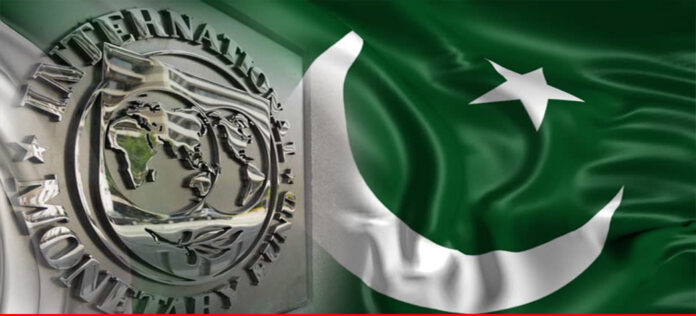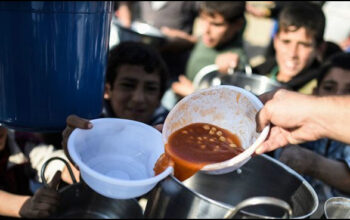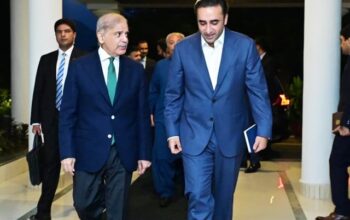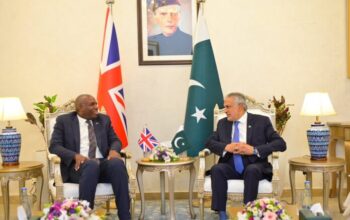By Staff Reporter
ISLAMABAD: The International Monetary Fund confirmed Pakistan’s $7 billion bailout program is fully financed, projecting $6 billion in external inflows for the next fiscal year as key allies pledge to roll over debt.
“The program is fully financed, with firm commitments for the next 12 months and good prospects for the remainder of the Fund-supported program,” the IMF said in its latest country report. It highlighted “substantial progress” in nailing down funds, with $2.6 billion already disbursed or due soon.
Pakistan had to rally financing guarantees from nations like Saudi Arabia, the United Arab Emirates, and China to convince the IMF to restart its lending, a prerequisite to ensure the country could handle its external payments. That effort paved the way for a $7 billion Extended Fund Facility (EFF) last year, won after Islamabad pushed through tough reforms that bolstered macroeconomic stability.
Support has flowed in from Saudi Arabia, the Islamic Development Bank, and a commercial loan backed by a partial guarantee from the Asian Development Bank.
Looking ahead, the IMF expects Pakistan to rake in about $6 billion in the fiscal year starting July, fueled by fresh IMF disbursements, deferred-payment oil imports from Saudi Arabia, funding from China and other global institutions, budget support loans, and bond issuance proceeds. The country also plans modest borrowing from commercial banks.
“Firm commitments are also in place for an additional $1 billion of financing in the next 12 months,” the IMF said. “Key bilateral partners remain committed to rolling over existing short-term liabilities in the remaining program period.”
The report said Pakistan’s financial health has improved. Foreign reserves have topped program targets, and a current account surplus emerged in the first eight months of fiscal 2025. Inflation has dropped to “historical lows,” though core inflation lingers at around 9 percent.
Economic recovery is underway, but growth in the first half of FY25 fell “somewhat lower than anticipated,” the IMF noted.
Pakistan’s performance under the EFF has been solid, meeting all seven quantitative performance criteria and five of eight indicative targets as of end-December, alongside most structural benchmarks. The 37-month program, greenlit on September 25, 2024, remains on track, but the IMF stressed that “continued strong and timely implementation” is vital to lock in stability and drive sustainable growth.
The Fund praised Pakistan’s policy moves, saying they “have continued to bear fruit.” Still, it flagged areas needing work. The fiscal 2025 primary surplus target is within reach, but more revenue reforms are needed to cut debt and free up funds for social and development spending. Monetary policy should stay tight and data-driven to keep inflation in the State Bank of Pakistan’s target range, while a flexible exchange rate is key to cushion shocks and rebuild reserves.
The IMF also zeroed in on the energy sector, calling for timely tariff hikes to recover costs and broader reforms to restore viability and trim high expenses. Deeper structural changes to governance and the trade and investment climate are essential for robust, inclusive growth, it said.
On the climate front, the Fund flagged a proposed Resilience and Sustainability Facility (RSF) arrangement, with access pegged at 49.2 percent of quota—or SDR 1 billion—to ease balance-of-payments risks tied to climate vulnerabilities. The plan includes steps to boost disaster resilience, improve water pricing, coordinate federal-provincial disaster response, enhance climate-risk reporting by banks and firms, and support Pakistan’s emissions goals.
Copyright © 2021 Independent Pakistan | All rights reserved




